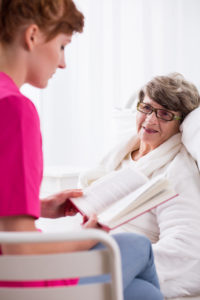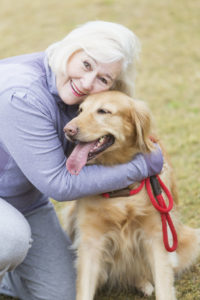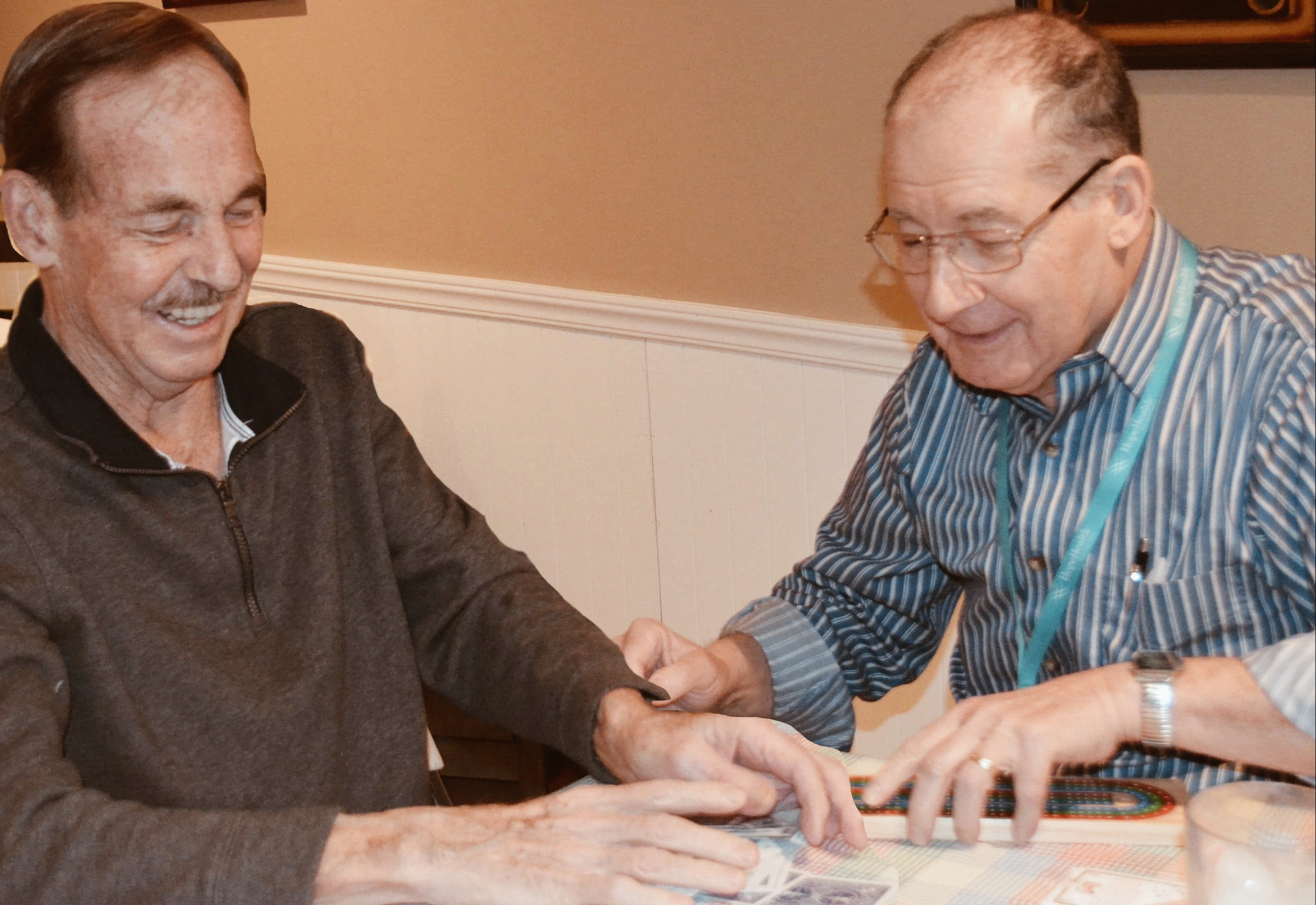John Corvese of Rhode Island hung up his hat in 2016, retiring from his career in construction equipment sales. He decided to give back to his community, and his choice for volunteering was HopeHealth.
Corvese’s reasons were personal. Over the years, hospice care helped his family get through the loss of six loved ones, including his parents. “For the comfort and care that HopeHealth gave us, I don’t think you can put a price on it,” he says.
Today, he sits on the other side of that caring relationship by visiting with hospice patients and families. “I enjoy helping people,” he explains. “I have gained an appreciation of life that I don’t think I could have gotten doing anything else.”
Volunteers are vital to HopeHealth
 Corvese is one of 300 compassionate volunteers who serve HopeHealth, a nonprofit organization that provides hospice care, home care and dementia and Alzheimer’s care in Rhode Island and Massachusetts.
Corvese is one of 300 compassionate volunteers who serve HopeHealth, a nonprofit organization that provides hospice care, home care and dementia and Alzheimer’s care in Rhode Island and Massachusetts.
Volunteers gave 21,000 hours of service in 2017, equivalent to the work of 10 full-time employees. (Medicare requires hospice agencies to supply at least five percent of direct patient support via volunteers.) HopeHealth’s volunteers can do either patient-facing or administrative work.
“The services that our patients and families get from our volunteer department are pretty amazing. We wouldn’t be here without volunteers,” explains Nicole D’Abrosca, HopeHealth’s volunteer manager.
Volunteers have a hand in every department at HopeHealth.
Something for everyone: how to volunteer
Retirees, nursing students, medical students and working people all give their time and compassion to HopeHealth.
Volunteers commit to working a minimum of one to two hours per week for one year and have a hand in every department, says D’Abrosca. Below are areas where you can help:
Patient and family support
 Volunteers who wish to interact with patients and families have many options. You could visit patients where they live, run errands or offer a ride to doctor appointments.
Volunteers who wish to interact with patients and families have many options. You could visit patients where they live, run errands or offer a ride to doctor appointments.
Corvese visits with patients twice per week. “Most of the time we chat,” he explains. “We’ll listen to music together, look at books, play games—you name it. It’s essentially whatever the patient wants to do.”
Another important role is respite care. Volunteers stay with patients to give family caregivers a break. “They can run errands or take a nap or just sit and watch TV without worrying about what’s going on in the other room,” Corvese says.
Patients and families must request volunteer services and can decline or switch volunteers after the first visit.
Other opportunities for patient and family support include:
- Running grief support groups or dementia-caregiver support groups for family members
- Meeting with armed services veterans through the We Honor Veterans program
- Staffing Camp BraveHeart, HopeHealth’s summer grief-support camp for children
Special skills
Volunteers with certain professional or other skills also lend a hand.
- Writers and videographers help families craft letters and videos to share with loved ones through the Hope Stories program. For example, one patient received assistance with writing letters to give his daughters before he passed, according to D’Abrosca.

- Pet therapists and therapy animals (like Rosie the dog) bring companionship and joy.
- Reiki practitioners offer relaxation and stress reduction.
- Music and art therapists bring comfort through their complementary therapies. (Demand is especially strong in Massachusetts for these volunteer specialists.)
- Knitters and crocheters donate their handiwork to grateful families.
Administrative support
Clerical duties run the gamut. You might answer phones, file documents, prepare education packets or work at events. You can also write bereavement cards and make phone calls to families in grief.
“New-volunteer training is where you get a sense of where you’ll find your niche.”
What to expect when you apply
Volunteers go through a similar application process as employees, according to D’Abrosca. Here are the steps:
1. Apply online or by mail. Find the volunteer application here.
2. Do a telephone screening. After receiving your application, a HopeHealth representative will call you to get acquainted.
3. Attend new-volunteer training. Some applicants enter training with one area of interest but change their mind after learning other others. “New-volunteer training is where you get a sense of where you’ll find your niche,” D’Abrosca says.
4. Get a background check and health check. To ensure the safety of patients and families, you must pass a background check and provide up-to-date medical and immunization records.
“We wouldn’t be here without our volunteers,” D’Abrosca says.
HopeHealth is recruiting volunteers in Massachusetts and Rhode Island! Areas of particular need are greater Boston and the Commonwealth’s greater Brockton and South Coast communities. Apply today!
Questions about volunteering? Contact us today at (844) 671-HOPE or Information@HopeHealthCo.org.

